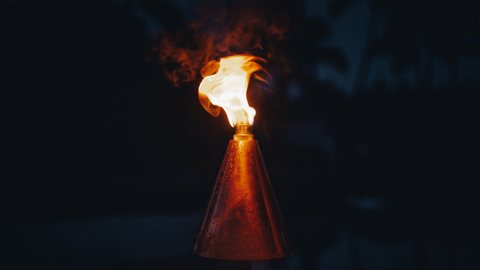Should MMA be in the Olympics?

Mixed Martial Arts (MMA), a dynamic and multifaceted combat sport, has experienced a meteoric rise in popularity over the past few decades. From its humble beginnings to achieving a global fanbase, MMA has evolved into a sport that is now being considered for inclusion in the prestigious Olympic Games. This article delves into the prospects and controversies surrounding the potential integration of MMA into the Olympic framework, exploring the arguments of both proponents and opponents and analyzing the potential impact on the world of sports.

A Brief History of MMA
Mixed Martial Arts, as we know it today, emerged in the early 1990s, inspired by the desire to determine the most effective martial art in a real, unscripted combat situation. The first UFC event in 1993 marked the inception of modern MMA, showcasing a blend of various martial arts disciplines and pitting practitioners of different styles against each other. The concept gained rapid traction due to its raw, unfiltered nature, which intrigued audiences and challenged conventional notions of combat sports.
The early years were marked by minimal rules, contributing to the sport's notorious reputation for violence. However, as the sport gained legitimacy and recognition, regulatory bodies began implementing rules to enhance safety and standardize competition. Organizations like the Ultimate Fighting Championship (UFC), founded in 1993, played a crucial role in shaping and popularizing MMA, showcasing it to a broader audience through regular events and a growing roster of talented athletes.
The Global Surge in MMA's Popularity
Over the years, MMA has undergone a remarkable transformation, shedding its early image of brutality and evolving into a widely respected and regulated sport. The sport's appeal has spread far beyond its North American origins, gaining immense popularity in regions such as Europe, Asia, South America, and Oceania. MMA's success can be attributed to several factors, including:
1. Diverse Skill Sets and Strategies
MMA's fundamental allure lies in its diversity. Athletes in MMA draw upon a wide array of martial arts, including Brazilian Jiu-Jitsu, Muay Thai, boxing, wrestling, karate, and judo. This amalgamation of styles allows for a rich variety of strategies and techniques, making each bout unique and captivating for fans.
2. Star Power and Global Icons
The rise of MMA stars, such as Conor McGregor, Ronda Rousey, Anderson Silva, and Georges St-Pierre, has significantly contributed to the sport's global appeal. These athletes have transcended the sport, achieving mainstream recognition and attracting a massive following, both inside and outside the MMA community.
3. Media Exposure and Digital Platforms
Advancements in media technology have played a pivotal role in the widespread dissemination of MMA. Television broadcasts, streaming platforms, social media, and dedicated MMA websites have made the sport easily accessible to a global audience, further boosting its popularity.
4. Evolution of Training and Coaching
The level of professionalism in MMA has skyrocketed, with athletes benefiting from specialized training and coaching. High-quality training facilities, nutritionists, sports psychologists, and strength and conditioning coaches have become integral parts of an MMA athlete's support network, resulting in superior performances and increased interest in the sport.

The Olympic Dream: MMA's Path to Inclusion
The question of whether MMA should be included in the Olympic Games is a topic of fervent debate among stakeholders, athletes, and fans alike. Advocates argue that MMA's evolution into a regulated and structured sport makes it a strong candidate for Olympic recognition. They emphasize several compelling reasons for its inclusion:
1. Global Popularity and International Reach
MMA has witnessed an exponential increase in global popularity, rivaling traditional Olympic sports in terms of viewership, attendance, and media coverage. With a vast and diverse fanbase across continents, MMA's integration into the Olympics could potentially attract a new and younger audience, aligning with the International Olympic Committee's (IOC) goal of engaging the youth.
2. Enhanced Safety Measures and Regulations
Over the years, MMA organisations and governing bodies have implemented rigorous safety regulations and guidelines to ensure the well-being of athletes. Modern MMA bouts adhere to strict rules and medical protocols, minimizing the risk of severe injuries and ensuring the safety of competitors.
3. Athlete Representation and Recognition
Many MMA athletes and their respective national federations ardently support the prospect of MMA becoming an Olympic sport. They see the Olympic platform as an opportunity for recognition and validation of their dedication, skills, and hard work. Representing their countries on the Olympic stage is a dream for numerous MMA athletes, adding prestige and motivation to the sport.
4. Alignment with Olympic Values
Proponents argue that MMA embodies several fundamental Olympic values, including excellence, respect, and friendship. Athletes who have dedicated their lives to mastering the diverse range of skills required in MMA epitomise the pursuit of excellence. The spirit of respect and sportsmanship is evident in the post-fight exchanges and camaraderie between competitors, highlighting MMA's alignment with the broader Olympic ethos.
Promoters of MMA in the Olympics
The International Mixed Martial Arts Federation (IMMAF), a global governing body for amateur MMA, stands at the forefront of advocating for MMA's inclusion in the Olympic Games. IMMAF actively works towards promoting the sport, setting unified rules and safety standards, and fostering a structured competitive environment. Their mission aligns with the vision of making MMA an Olympic sport, emphasizing the growth, development, and global recognition of the discipline.
Dana White, the President of the Ultimate Fighting Championship (UFC), one of the largest and most influential MMA organizations globally, has also expressed support for MMA's inclusion in the Olympics. White, known for his role in transforming the UFC into a global powerhouse, sees the potential of MMA to captivate a broader audience through the Olympic platform. He advocates for the sport's legitimacy and believes that Olympic recognition would underscore MMA's position as a mainstream sport.
Critics and Opposition to MMA in the Olympics
Amidst the fervor for MMA's inclusion in the Olympics, several concerns and criticisms have been raised by those who oppose its integration into the esteemed Games. The primary points of contention include:
1. Safety and Injury Risks
One of the most significant concerns surrounding MMA's inclusion pertains to the sport's inherently aggressive nature and the potential for severe injuries. Critics argue that despite the implementation of safety measures, the risk of significant injuries remains relatively high compared to traditional Olympic sports. The close-quarter combat and high-impact maneuvers involved in MMA bouts pose a unique safety challenge.
2. Perceived Violence of MMA in the Olympics
Opponents of MMA's integration contend that the sport's perception as violent could tarnish the image of the Olympic Games. They argue that the aggressive and combative nature of MMA may not align with the traditional Olympic values of sportsmanship, fair play, and non-violence. The inclusion of MMA could potentially shift the focus of the Olympics from athleticism and skill to the more confrontational aspects of the sport.
3. Lack of Unified Rules and Standards
Another significant obstacle highlighted by critics is the lack of uniformity in rules and regulations across different MMA organizations. MMA operates under varying sets of rules and standards depending on the organization, making it challenging to establish a universally accepted framework for Olympic competition. The absence of standardized rules could impact the consistency and fairness of the event on the Olympic stage.
Facts and statistics for MMA in the Olympics
-
Potential Participation: If MMA were to be included in the Olympics, it could attract athletes from various countries. For instance, there could be an estimated participation of 100+ countries and thousands of athletes globally.
-
Event Categories: If adopted, MMA might be categorized into multiple weight classes, mirroring the structure seen in professional MMA leagues. These could range from flyweight to heavyweight, providing a diverse competitive landscape.
-
Audience and Viewership: The introduction of MMA could significantly boost the viewership, attracting millions of viewers worldwide, both on television and digital platforms.
-
Economic Impact: MMA could generate substantial economic impact, including revenue from broadcasting rights, sponsorships, ticket sales, and tourism, potentially contributing billions to the host nation's economy.
-
Athlete Demographics: The athletes participating in MMA would likely represent a broad spectrum of ages and backgrounds, showcasing the sport's diversity and attracting a younger demographic to the Olympic Games.
Conclusion to MMA in the Olympics
Mixed Martial Arts stands at a pivotal crossroads in its journey toward potential inclusion in the Olympic Games. The sport has transitioned from its early roots as a raw and unregulated spectacle to a highly organised and widely recognised discipline. The debate regarding the martial art's integration into the Olympics continues, with passionate arguments on both sides. Ultimately, the decision lies with the International Olympic Committee, tasked with carefully weighing the potential benefits and risks associated with welcoming MMA into the Olympic family.
MMA's remarkable rise in popularity, evolving safety measures, and international reach make it a compelling contender for Olympic recognition. However, it must address concerns surrounding safety, violence, and the need for standardized rules. The coming years will likely witness ongoing discussions and negotiations as MMA advocates and critics engage in dialogue, striving to find a common ground that ensures the sport's sustainable growth and its potential place on the global Olympic stage.


Leave a comment